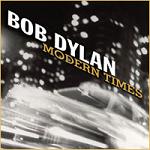In the gospels, Jesus foretells of nations rising against nations, of famines and earthquakes, pestilence and other troubles–a millennial moment ABC cites in its special two-hour edition of tonight’s “20/20,” titled “Last Days on Earth.” Lucky for Jesus, Stephen Hawking wasn’t hanging around the banks of the Jordan, lowballing the odds of an earthquake strong enough to do us all in. That’s precisely the problem with “Last Days on Earth,” structured as a countdown of the eight most likely ways civilization as we know it will end. None of them, it turns out, are too likely. A beta-ray bloom caused by a collapsing star, or a supervolcanic eruption could scorch us all to death or blanket the Earth in sulfuric clouds. But as Hawking points out, neither has happened in 400 million years, so why sweat it?
Besides, if we’re all toast, no one’s going to be around to miss us, will they?
ABC doesn’t address these existential questions to any satisfying degree. A Rapid City, South Dakota, preacher recalls Christ’s warning to the disciples (see above) and in a few man-in-the-street montages, common folk say what they’d do given a few weeks or hours to live. We’re left wanting to hear–and think–more about what we might do spiritually when all hope is lost.
The room where I screened the show did get a little quiet, however, when a NASA scientist expained that an asteroid is expected to pass within a 24,000 miles of Earth in 2029, and could return seven years later in line to wallop our favorite planet. If we fail to redirect this bit of cosmic mischief, we’d know the date of impact–and a rough idea of our death–to the hour. This scenario also yields the one bit of good news in ABC’s show: a trauma psychologist predicts that the human race’s response to a death-date certain will be to reach out to find love. Now that’s a prediction Jesus would be down with.


